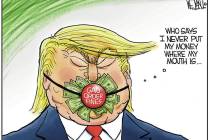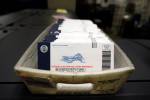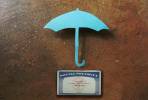A healthy dose of sunshine
Technically, Nevadans elect their judges.
But incumbency is a powerful vote-getter.
In down-ballot races where voters are unlikely to know much about the candidates (barring a wave of negative publicity about any particular jurist), voters often deem it safer to stick with someone who's shown they can do the job.
So, at least at the District Court level, many Nevada judges are actually appointed.
The mechanics of the process work like this: A sitting judge, having won higher office or put in enough years to qualify for a generous pension, announces his or her retirement. But the judge retires mid-term.
At that point, the Nevada Commission on Judicial Selection solicits applications from interested attorneys and lower-court judges and narrows the field from a few dozen to a few -- a process that's historically been carried out in secret. The governor then makes the final selection of a candidate to complete the unexpired term -- a candidate who will be considered an "incumbent," come election day.
Few are bounced. Clark County District Judge Douglas Herndon, for instance, was appointed to the bench in January 2005 to replace Ron Parraguirre, who had won election to the Supreme Court. After slightly more than a year in office, Judge Herndon drew no opposition when he filed for election the following year. Similarly, Clark County District Judge Tim Williams handily won an election challenge barely six months after his appointment to replace the retiring John McGroarty.
This makes the interview and selection process of the Nevada Commission on Judicial Selection a vital piece of public business.
Fortunately, late last year, the commission took a vital step toward accountability and transparency, voting unanimously to open its screening process to the public.
While letters of recommendation will remain secret in hopes of ensuring candidness by their authors, last December's decision paved the way for interviews, deliberations and most backup material to be made available to taxpayers.
Tuesday morning, the Nevada Commission on Judicial Selection started what was expected to be a long day interviewing applicants for a Clark County Family Court seat made vacant by the retirement of Judge Gerald Hardcastle. And -- for the first time -- that interview process was open to the public.
"The commission believes in the quality of the process and firmly believes the public should see it," said Chief Justice Bill Maupin, who chaired the selection committee last year. "This is an experiment in open government we know will succeed."
And it's a giant leap forward.
Current Chief Justice Mark Gibbons and his colleagues on the selection panel -- Ruthe Agee, Ann Bersi, Rose Dominguez, David Grundy, Michael Pennington and Thomas L. Stockard, as well as temporary members Steve Wolfson and Jeffrey Gilbert -- deserve high praise for putting the interests of the state and the public above "politics as usual."
Gov. Jim Gibbons is expected to make an appointment from among the three finalists within about 30 days.
Accountability to voters overrides all other concerns when it comes to choosing judges. A healthy dose of sunshine is welcome into the judicial selection process.























